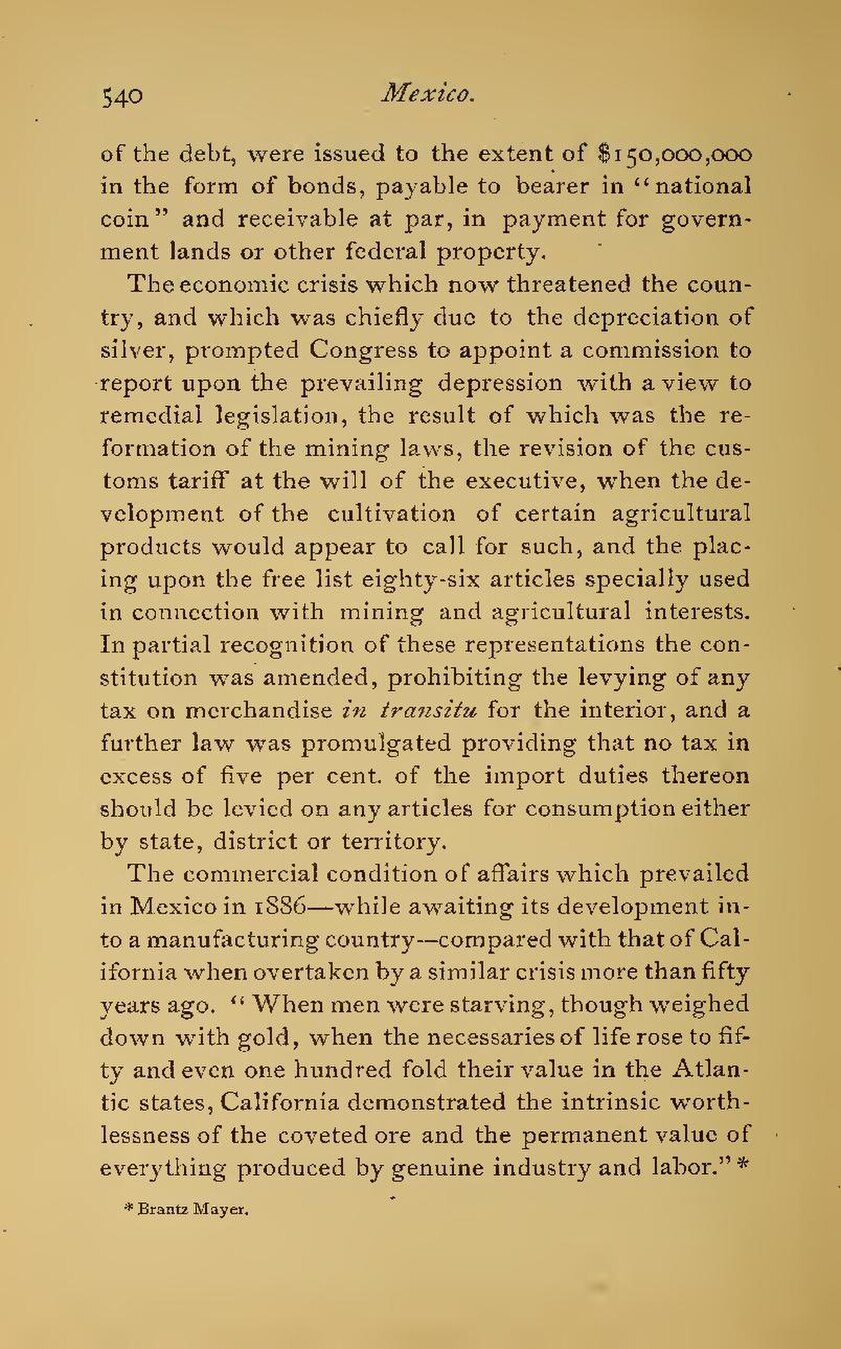of the debt, were issued to the extent of $150,000,000 in the form of bonds, payable to bearer in "national coin" and receivable at par, in payment for government lands or other federal property.
The economic crisis which now threatened the country, and which was chiefly due to the depreciation of silver, prompted Congress to appoint a commission to report upon the prevailing depression with a view to remedial legislation, the result of which was the reformation of the mining laws, the revision of the customs tariff at the will of the executive, when the development of the cultivation of certain agricultural products would appear to call for such, and the placing upon the free list eighty-six articles specially used in connection with mining and agricultural interests. In partial recognition of these representations the constitution was amended, prohibiting the levying of any tax on merchandise in transitu for the interior, and a further law was promulgated providing that no tax in excess of five per cent, of the import duties thereon should be levied on any articles for consumption either by state, district or territory.
The commercial condition of affairs which prevailed in Mexico in 1886—while awaiting its development into a manufacturing country—compared with that of California when overtaken by a similar crisis more than fifty years ago. "When men were starving, though weighed down with gold, when the necessaries of life rose to fifty and even one hundred fold their value in the Atlantic states, California demonstrated the intrinsic worthlessness of the coveted ore and the permanent value of everything produced by genuine industry and labor."[1]
- ↑ Brantz Mayer.
